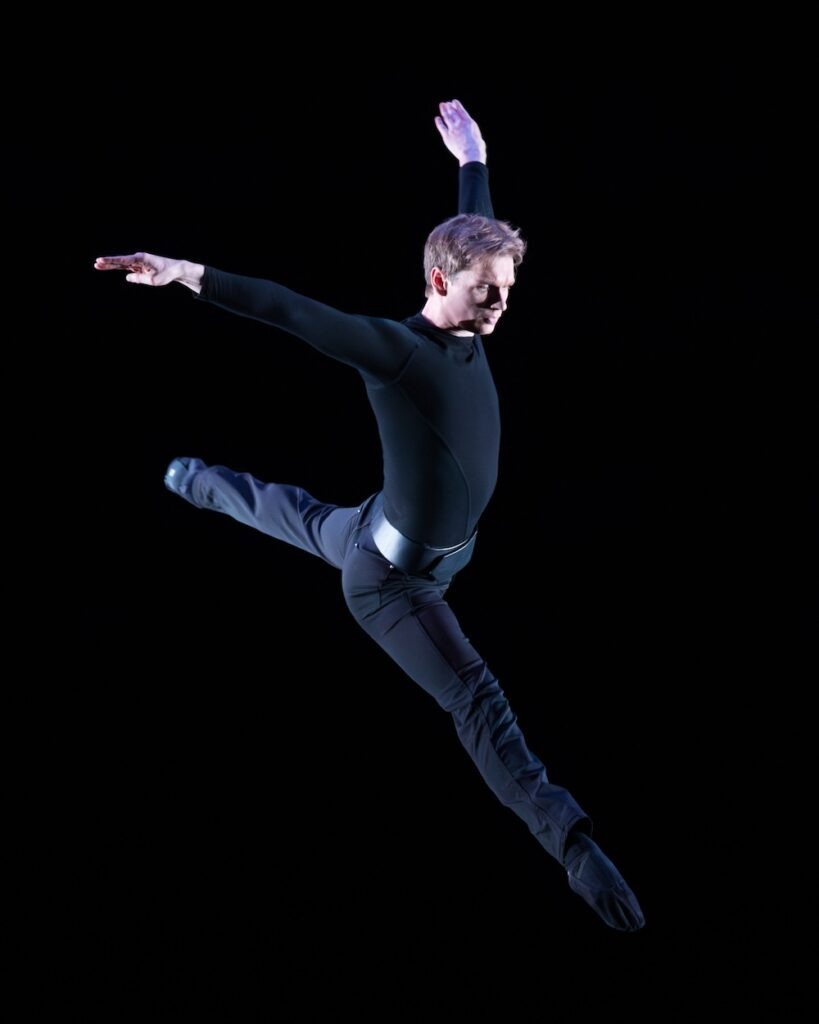
3L Alex McFarlin grew up in Tennessee and trained in a professional ballet school there. At 18, he auditioned for Ballet West in New York City and earned a spot in their secondary company in Utah, working his way up from there before retiring as a first soloist in 2021.
“Before law school, I performed professionally with Ballet West for 14 years. I loved my time there,” McFarlin recalls. “I performed many dramatic roles in my time with the company, including Romeo, Hamlet, Vladimir Lensky in Eugene Onegin, and Sharpless from Madame Butterfly. One thing I miss from my prior career is reading the literature to prepare for the roles.”
Since a career in ballet is generally short, however, McFarlin began looking for his next career and says law fascinated him most.
“I listened to Supreme Court oral arguments all the time. I used to download them from Oyez and listen to them wherever I’d go. I was hooked,” he says. “I found great oralists enchanting—Paul Clement, Elizabeth Prelogar, Lisa Blatt—and I hoped that a career in law was the right fit for me.”
Oral argument draws on McFarlin’s skills as a ballet dancer as well.
“Dancers navigate unpredictable elements on stage: music, space, partners, and other dancers. They can prepare for about 90 percent of the obstacles, but every night is different,” McFarlin explains. “So, too, a judge’s questions provide an unpredictable element. A good oralist may be prepared for most questions but probably can’t foresee all. It’s an exciting part of both fields.”
Though McFarlin is now a few short months away from graduating from S.J. Quinney College of Law, he says he wishes he’d known there is no rush to choose an area of law practice as a student.
“For some reason, I thought it was important to nail down a specific area quickly so that employers will know where I stand. I’m not sure why I put that pressure on myself. Over the summers, I’ve done transactional work, commercial litigation, trusts and estates, bankruptcy—whatever was needed,” McFarlin says. “In short, focusing on a specialty early in school doesn’t seem necessary.”
While he has worked in multiple law specialties, his most rewarding field placement was at the Utah Court of Appeals during his 2L year.
“This internship helped me develop as a writer and thinker, and I learned more about our appellate system in Utah,” McFarlin notes. “Beforehand, our appeals process was a black box to me. I highly recommend interning for a judge at some point during law school if the student can manage the workload.”
Religious freedom is a passion within law as well. McFarlin’s paper about Apache Stronghold, an organization of Apache Nation members trying to protect a religious site central to their faith and culture, was recently published in the Utah Law Review.
“It touches almost every area of law—employment, criminal, commercial, and others. I think the issues are the most interesting too: How to balance the protections and limits of religious freedom in the U.S. is a puzzle,” he says. “And it’s a puzzle that’s shaped our nation’s history.”
McFarlin is also proud of his work as a teacher assistant for the Legal Methods class and says the best part of attending the S.J. Quinney College of Law has been meeting fellow students.
“I love legal writing and the challenging process of it—the drafting, organizing, and editing nonstop. I benefited from my Legal Methods professor’s dedication to helping and inspiring her students, so having the opportunity to turn around and coach incoming 1Ls has been all joy,” he says. “Over the past three years I’ve developed solid friendships with many of my classmates, and I feel a strong sense of loyalty to them. They’re brilliant, kind, and genuinely curious about the law and not close-minded. I appreciate that.”
When McFarlin graduates in May 2024, he is striving for a career that plays to his strengths and interests in writing and speaking.
“I want to be a principled litigator and appellate attorney here in Utah. I want to be in court as much as possible, and it’s important to me to develop a reputation with Utah’s courts as a great writer and thinker,” he says. “I want to establish that credibility.”
